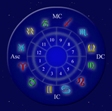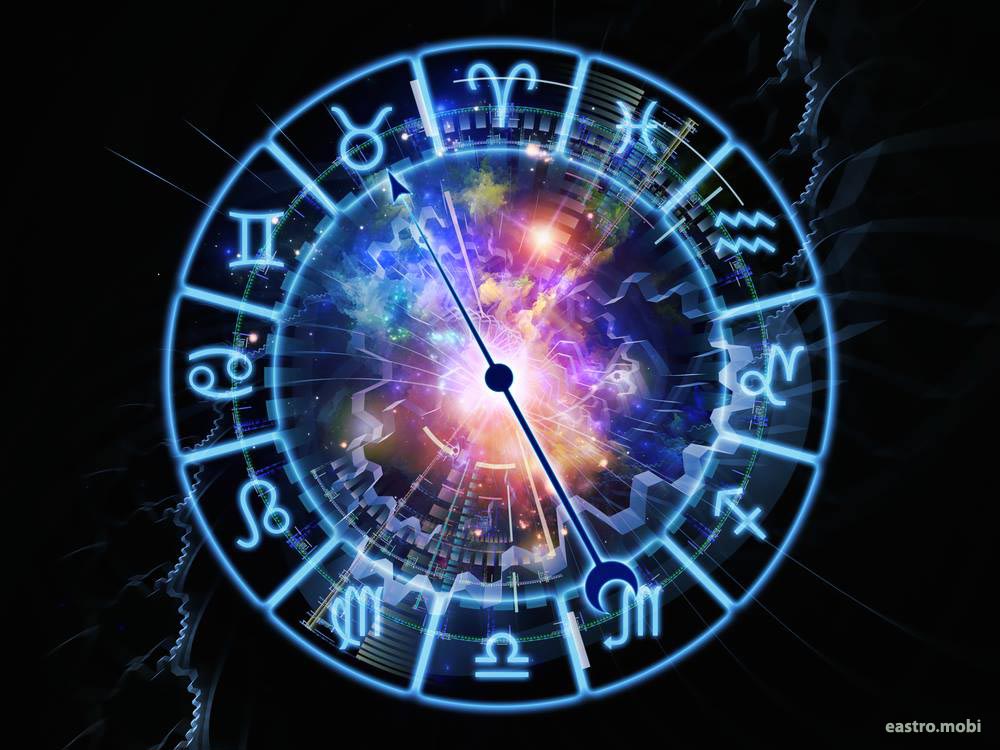
Around 1500 B.C, the Charaka Samhita, one of the three classic Ayurvedic texts still used today, stated that even if an Ayurvedic doctor has a complete knowledge of Ayurveda,, but can not reach the inner Self of the client, or is more concerned with fame or fortune, and not spiritual development (Self-realization), they will not be an effective practitioner.
This becomes ever more important when we read that Charak states the first cause of illness is a loss of faith in the Divine. To understand the spiritual nature of Ayurveda, we must know something about the Vedic roots of philosophy, spirituality and universal religion. According to the ancient Vedic scriptures of India, there is a goal to life.
We are not simply born, live and die without some meaning or purpose. Albert Einstein reflected this idea when he said, `God does not play dice with the universe; there is an order and reason for all of life'. According to Vedic philosophy, life is Divine, and the goal of life is to realize our inner Divine nature.
Ayurvedically speaking, the more realization of our Divine nature we have, the healthier we are. Thus it becomes the responsibility of the Ayurvedic doctor to inspire or help awaken in the client, their sense of Divine Self.Positivity or love, however you call it, is the best medicine. By showing the patient they have this Divinity within themselves, they feel a connection to life and God (however each client defines God. For atheists, we speak of the greater mystical power, which is synonymous to God).
This connection allows them to feel they have a handle on life and a method to take responsibility to develop their own inner Divinity. After that, we offer secondary therapies of herbs, diet, meditation, etc.For some, it may be unusual to hear spirituality discussed in the same sentence as medicine. It is indeed a great challenge to show how spirituality has a direct relationship to health. For this, a definition of health is also needed.
Usually when we think of health we think of illness, disease, or its opposite, a healthy individual. This general idea of health has two components; true health and diagnosed health. Many times the client is told they are healthy, but they still feel something is wrong.Often times this is termed psychosomatic disease or neuroses, or imagination. Some doctors refer patients to psychiatrists or psychologists. Another example of health and disease is a doctor finding themselves having to give the troubling prognosis that he can do nothing for this type of disease, or that a patient has only so long to live. In some of these latter instances the client defies medical wisdom and lives for years, and sometimes a so called miraculous recovery occurs.
There are stories of people who have been declared dead and then they come back to life.
There are many questions regarding the basic definition of health; is it psychosomatic, why is it sometimes beyond the help of physicians, why do some people's condition change for the better, even when it seems they are about to expire, how can people die and then come back to life? The question of spirituality or Divine grace can certainly enter into consideration in these situations. What gives a person the will to live, if in fact it is the will to live?A second definition of health offers room for greater consideration. Health is achieved or lost based on four main factors of life; physical and mental health, having a purposeful career, having a purposeful relationship and having an overall spiritual purpose in life. The Vedas state these four areas of life need to be given equal attention for the state of health to be maintained and spiritual development to continue. Only when one is healthy can one work. But what kind of work?
As we said, the Vedas state that life is Divine and life's purpose to awaken to our full Divinity. This means we need to look at all of our actions to determine whether they are both worldly and Divine.
For example, just working at a job to make money may fulfill the requirements of providing food and shelter for the individual and family, but it does not necessarily satisfy the spiritual aspirations of an individual. The scriptures of all cultures say that we are all individuals and that difference is the spice of life.It is further believed in the Vedic tradition that each person is uniquely qualified- that they have some innate or God-given talents. We can think of these God-given talents as the gifts that one was born with.
Moreover, we might even say that to perform these talents is the reason why a person is born- a mission, if you like. If we perform our mission we feel a sense of meaning and satisfaction, and see the growth of our lives. However, if we do not put our innate talents to work, life is harder and less meaningful.Why would a person not use their God-given talents? Perhaps parents forced the child to follow a certain path. For example, if a person is born with the love of art, but their parents told them you can't make a living doing art, do something practical, like accounting or carpentry.
Perhaps some of societies beliefs do not allow for unique creativity or does not accept the idea of loving the work you do, that forces a person to follow a more difficult and lifeless career.Or perhaps it is the individual themselves who does not have enough self-worth or faith that they can do what they would really love to do.
Most likely, it is a combination of all these factors. The bottom line, as stated by the Vedas is, if you do not work in a career suited to your abilities, you will find work and life empty and devoid of meaning. The result is the creation of mental, physical and/or spiritual disease. Diseases like cancer are considered in Ayurveda to be emotionally based.It is said that it is due to a person not having a purpose in life- i.e., suppressing that life, that they begin to create life within the body, which is the cancer.
It has been my experience with the more serious ill clients that by discussing what they would love to do, instead of what they are told to do, that life returns to their eyes. As they begin to follow up on these ideas, I've seen some remarkable recoveries. Thus we have another aspect of health to consider.
>
When a person is healthy and happily
working, the next domain of life is relationships. We are acutely aware
of late of the emotional and physical abuse that exists in many
relationships today. Co-dependency is the latest disease to destroy
relationships. From the spiritual standpoint, if we depend on anything
other than God, we are in a co-dependent relationship. God is eternal,
people and life are transitory. Spiritual development directs us to
focus ever more on our eternal inner nature, and not on the illusory or
changing outer realm of life.
So then for a relationship to be considered healthy, the partners must continue to develop their inner spiritual life, depending on their God, and then sharing their growing spiritual fullness with their spouse.
Too often a person is attracted to another because they see a quality in them that they think they do not have and would like to share. In reality, each person has all human qualities within themselves, because inner Divinity, since it is eternal, by definition includes all things.Further, if we can see a quality in another, we must have it within ourselves in order to recognize it in the first place. When a relationship is healthy, the people are healthier. When there is a lacking, friction or anxiety develops and not only does the relationship suffer, but so does the health of the partners.
The idea is to be full inside yourself first- taking care of one's health (loving oneself) and working in a career that one loves are essential ingredients to a healthy and happy relationship.This concept of spiritual relationships is unique in the world today.
Movies and romance novels report a totally different picture and purpose of relationships; sex, money, power, fame, etc. Parents tell their young girls of the shining white knight who will save them, and young boys of how they need to be the breadwinners. Although I am not suggesting there may be natural differences between men and women, it is the idea stressed here that each person contains all qualities within themselves and that they needn't look outside themselves and their career for fulfillment.Then, a unique sharing between partners can occur.
There is a common story among couples, where either or both partners feel they need to give up things they love to do to keep the relationship together. In actual fact, this may be the beginning of the end. It is like trying to put a band-aid on a disease without treating the disease. So then mental and physical abuse, and co-dependency are further situations which effect a client's health.The last area of life is specifically the spiritual realm. Only when people are healthy and happy in their careers, and their family life is flourishing, can they begin to truly feel Divine grace in all areas of their life. A client's thoughts naturally turn the Divine to offer thanks and what begins to be awakened is the quiet desire to develop more grace and peace of mind. Thus they begin to see the Divine within themselves, their job and their family. It is a matter of time for the experience of Divine oneness to be seen in all people and all things. Automatically, people begin to want to delve deeper into their own chosen religion or mystical life.
Life without spirituality is still lacking. As Charak has stated, any lacking is grounds for physical, mental or spiritual illness to breed. So then, spirituality must also be added to the definition of health.
As each area of life grows, it benefits the other domains of life. By tending to each area of health accordingly and in due time, a client achieves a balance of health, physically, mentally, career-wise, in relationships and within their spiritual life.
With this expanded definition of health (body, mind, career, relationship and spirit), we can see a direct relationship between spirituality and health. Love of God equates with love of Self. Love of career adds to a greater definition of love of Self. Spiritual relationship-love further fills in the holes in our holistic or comprehensive definition of healing. Developing peace of mind and Self-realization completes the total picture of a healthy life.
Ayurvedic doctors and practitioners, are taught to honor and accept all religions and to help guide the person to go more deeply into their own chosen path. The universal religious principles of spirituality that Ayurveda and the Vedic philosophy offers helps guide people without insisting they change who they are, what they love to do, who they love to be with and who to pray to.
Ayurveda offers the doctor or practitioner a more comprehensive and more deeply rooted paradigm with which to heal, prevent and promote the longevity of their clients. Perhaps more importantly, Ayurveda offers the doctor and practitioner a methodology for their own complete development as well. The best teacher is one who shows through example. And as Charak has stated, in order to truly heal, you must be reaching the Self of both yourself and the client.
This article is for educational purposes only, and is not intended to treat, diagnose or prescribe. It in no way is intended to substitute for care from duly licensed health professionals.
(c) copyright 2006 Swami
Sadashiva Tirtha. Reprinted with permission. Swamiji is the
author of the Ayurveda Encyclopedia and founder of the International
Vedic Institute
and Swami Narayan Tirtha Math. http://ayurvedahc.com



